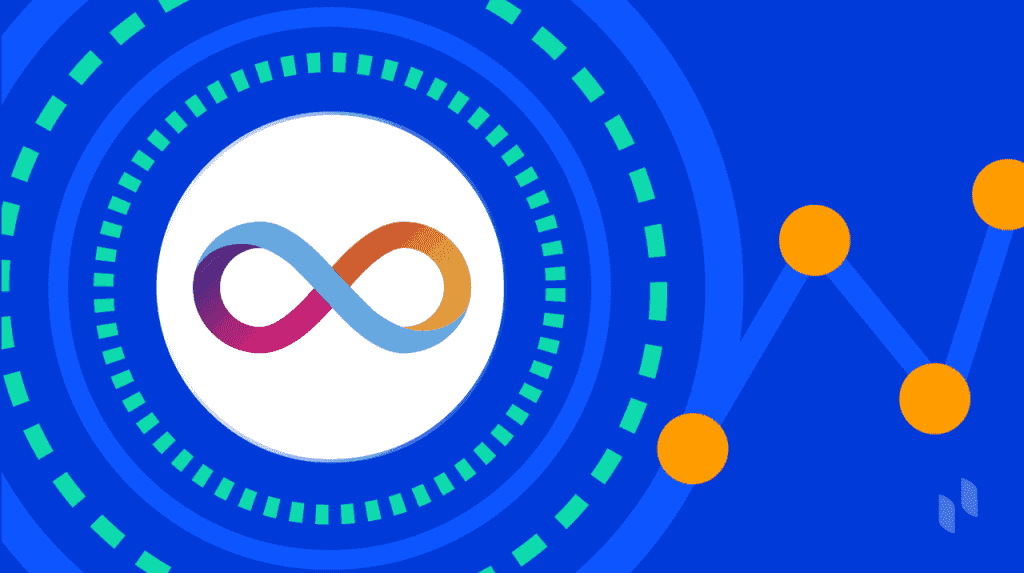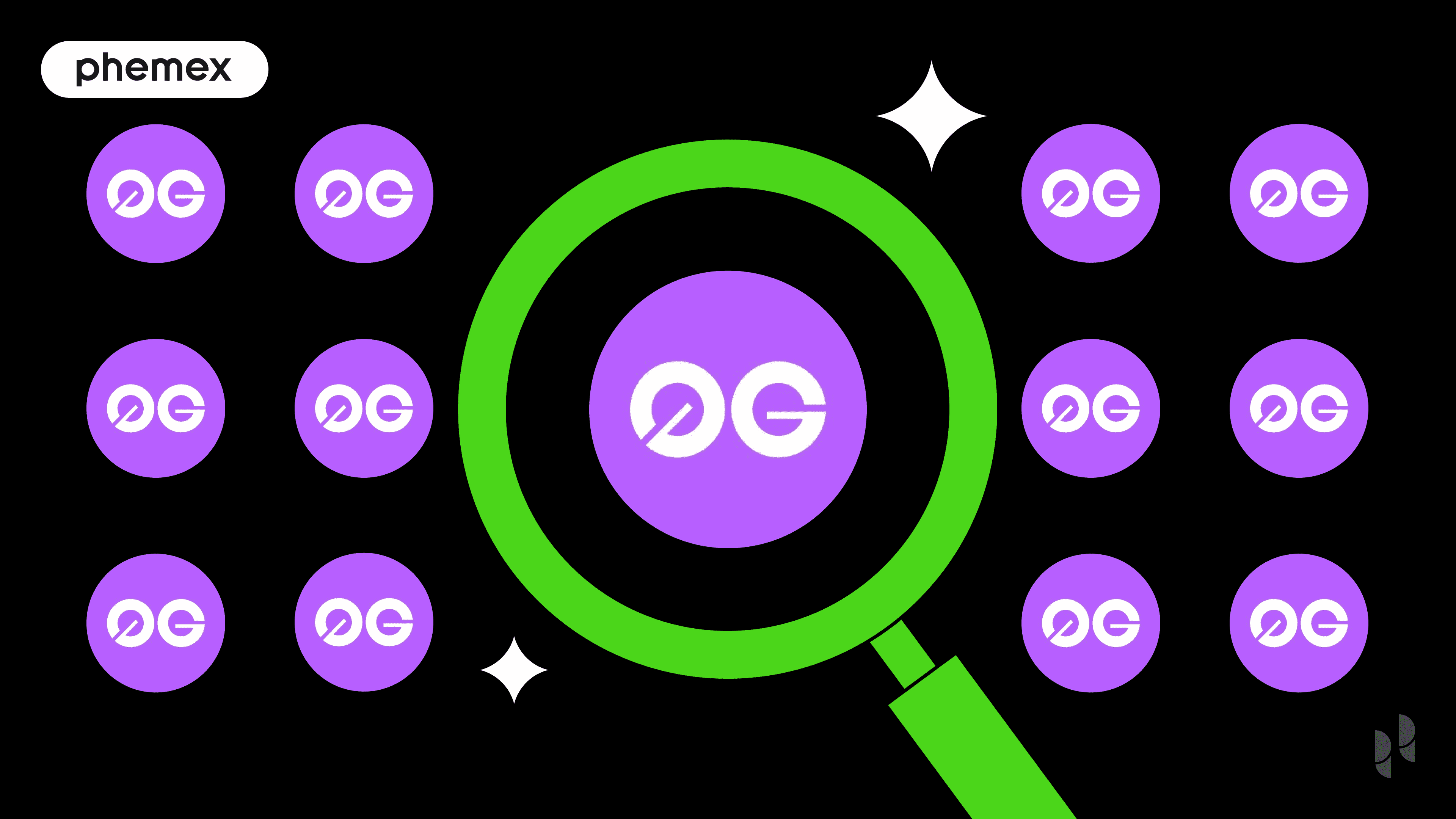Summary Box (Quick Facts)
-
Ticker Symbol: ICP
-
Chain: Internet Computer
-
Contract Address: Not applicable (Native Token)
-
Circulating Supply: Approximately 539.47 million
-
Total Supply: Approximately 539.47 million
-
Primary Use Case: Powering a decentralized internet through "canister" smart contracts.
-
Current Market Cap: Approximately $1.6 billion - $2.1 billion
What Is the Internet Computer (ICP)?
The Internet Computer (ICP) is a public blockchain and cryptographic protocol designed to build a new, decentralized version of the internet. Launched by the DFINITY Foundation, its primary goal is to extend the functionality of the public internet so it can host software and data directly on-chain, eliminating the need for centralized corporate cloud services. For those asking, “What is Internet Computer?” the simplest explanation is that it’s a global network of independent data centers that work together to create a seamless, unstoppable, and tamperproof platform for running software at web speed.
At its core, the Internet Computer solves the critical problem of internet centralization. Today, a vast majority of websites, applications, and enterprise systems are hosted on servers owned by a handful of tech giants. This concentration of power creates single points of failure, raises concerns about data privacy and censorship, and stifles innovation. The Internet Computer explained further is a radical re-imagining of blockchain architecture, designed from the ground up to host scalable applications, from simple websites to complex DeFi platforms and enterprise systems, entirely within a decentralized environment.
Its relevance spans across the entire Web3 industry. By providing a complete technology stack where front-end, application logic, and data all reside on the blockchain, ICP empowers developers to create truly decentralized applications (dApps) that are fast, secure, and fully controlled by their users, not by a corporation.
The Technology Behind Internet Computer (ICP)
The Internet Computer's innovative architecture is what sets it apart from traditional blockchains. It is built on a set of advanced cryptographic protocols that enable it to achieve unprecedented performance, scalability, and security.
Consensus Mechanism and Subnets
The Internet Computer operates on a variation of Proof-of-Stake (PoS) consensus run by a network of nodes located in independent data centers worldwide. This network is organized into smaller, interconnected blockchains called subnets. Each subnet is a replicated state machine, meaning a group of nodes runs a consensus protocol to process the same inputs in the same order, ensuring fault tolerance even if some nodes are malicious. The protocol assumes that in a subnet of n replicas, fewer than n/3 are faulty, a standard for achieving Byzantine Fault Tolerance. This partitioned architecture allows the network to scale its capacity infinitely by simply adding more subnets, with each one contributing to the overall computational power of the Internet Computer.
Chain-Key Cryptography
A cornerstone of the Internet Computer is Chain-Key Cryptography, a collection of advanced cryptographic technologies that gives ICP its unique capabilities. A key component is threshold signatures, where a subnet can have a single public key, while the corresponding secret key is split into "shares" and distributed among the nodes in the subnet. No single node (or small group of malicious nodes) can forge a signature. This allows the subnet to sign messages with extreme efficiency and security.
This technology enables several groundbreaking features:
-
Speed: Transactions can be finalized in one to two seconds, a massive improvement over many other blockchains.
-
Efficiency: External users or other subnets can verify a transaction with a single public key, without needing to download and validate an entire blockchain history.
-
Chain Evolution: It facilitates essential maintenance activities like garbage collection (purging old data to keep nodes lightweight), fast-forwarding for new or recovering nodes, and seamless protocol upgrades without disrupting the network.
Canisters: The Evolution of Smart Contracts
On the Internet Computer, smart contracts are called canisters. A canister is a more advanced concept than a traditional smart contract; it's a bundled unit of WebAssembly (Wasm) bytecode and the memory pages where that code runs. This means canisters package both logic and data together. They are highly versatile and can perform general-purpose computation, store data, and even serve interactive web content directly to end-users' browsers. This capability is revolutionary, as it allows developers to build end-to-end dApps without relying on centralized front-end hosting.
What Does ICP Do? The Internet Computer Use Case
The ICP token is the native utility token that powers the network and enables its core functions. Its design is integral to the ecosystem's operation and sustainability. The primary Internet Computer use case is centered around three key activities: governance, computation, and rewarding participants.
1. Governance Through the Network Nervous System (NNS)
The most prominent use of ICP is for governance. Token holders can lock their ICP within the Network Nervous System (NNS)—the open, algorithmic DAO that controls the entire Internet Computer network—to create "neurons." These neurons grant voting power on proposals that determine the future of the platform. This includes decisions on:
-
Upgrading the protocol software.
-
Onboarding new data centers and node providers.
-
Modifying the network's economic parameters.
-
Creating new subnets to increase capacity.
By participating in governance, neuron holders earn significant voting rewards in the form of newly minted ICP, incentivizing long-term commitment to the network's health and security.
2. Fueling Computation via Cycles
The Internet Computer employs a "reverse gas model." Instead of end-users paying network fees for every transaction, developers pay for their applications' computational resources. This is done by converting ICP tokens into cycles. Cycles function like a stablecoin for computation, paying for resources like CPU usage, storage, and bandwidth consumed by their canisters. Developers pre-load their canisters with cycles, which are then "burned" as the application runs. This model creates a user experience similar to Web2, where users can interact with applications freely without needing a wallet or tokens for every click, thereby removing a major adoption hurdle for dApps.
3. Rewarding Node Providers
ICP tokens are used to reward the independent data centers that run the nodes hosting the network. The NNS regularly mints new ICP to pay these providers for their services, conditioned on them providing reliable hardware and bandwidth according to the NNS's established policies. This ensures the network remains secure, decentralized, and geographically distributed.
How Many ICP Tokens Are There?
The tokenomics of the Internet Computer are designed to be dynamic, balancing inflationary and deflationary pressures to support the network's growth and utility.
-
Circulating vs. Total Supply: As of late 2025, the circulating supply of ICP is approximately 539 million tokens, which also represents the current total supply.
-
Inflationary Mechanisms: The Internet Computer has a built-in inflation rate. New ICP tokens are minted to serve two primary purposes:
-
Deflationary Mechanisms: To counteract inflation, there is a powerful deflationary pressure. When developers need to power their applications, they must convert ICP tokens into cycles. This conversion process burns the ICP, permanently removing it from the supply. As more applications are built and used on the Internet Computer, the demand for cycles will increase, leading to a higher burn rate of ICP.
This balanced model ensures that participants are incentivized to secure and govern the network while creating a sustainable economic loop where the token's utility directly drives its value.
Internet Computer (ICP) vs. NEAR Protocol (NEAR)
Both the Internet Computer and NEAR Protocol are high-performance Layer-1 blockchains designed to host scalable decentralized applications. However, they approach architecture, cost, and overall vision differently. Here is a comparison of ICP vs NEAR Protocol:
| Feature | Internet Computer (ICP) | NEAR Protocol (NEAR) |
| Core Vision | To be a decentralized "world computer" that replaces the entire traditional IT stack, hosting applications end-to-end. | To be a super-fast, incredibly secure, and massively scalable "blockchain operating system" for an open web. |
| Architecture | Subnets: The network is composed of independent blockchains called subnets that are seamlessly integrated. Scales by adding more subnets. | Nightshade Sharding: A dynamic sharding design where the chain is split into parallel "shards" that process transactions, increasing throughput. |
| Consensus Mechanism | A proprietary Proof-of-Stake (PoS) variation governed by the Network Nervous System (NNS). | Doomslug/Nightshade: A PoS consensus mechanism designed for high efficiency and security in a sharded environment. |
| Transaction Speed | Extremely fast, with transaction finality in 1-2 seconds. Ideal for web-speed applications. | Very fast, with transaction finality typically around 1-3 seconds. |
| Cost Model | Reverse Gas Model: Developers pre-pay for computation with "cycles," making dApps free for end-users to interact with. | Traditional Gas Model: Users pay transaction fees in NEAR, though developers can subsidize costs for their users. 30% of fees are paid to contract creators. |
| Smart Contracts | Canisters: Advanced smart contracts bundling code (WebAssembly) and data. Can serve web content directly. | Standard smart contracts compiled to WebAssembly (Wasm). Supports Rust and JavaScript/TypeScript for development. |
| Governance | On-Chain DAO (NNS): A sophisticated, token-based algorithmic DAO that controls all aspects of the network. | A mix of on-chain and off-chain governance, with a focus on community-led guilds and a developing governance framework. |
| On-Chain Storage | Designed for large-scale, cost-effective on-chain data storage, priced stably in cycles. | Storage is paid for by users or developers via storage staking, where locking NEAR tokens covers the cost. |
In summary, while both platforms are pushing the boundaries of what blockchains can do, ICP is focused on providing an all-in-one, decentralized cloud infrastructure, whereas NEAR prioritizes creating a highly accessible and scalable base layer for a multi-chain future.
Team & Origins
The Internet Computer project was founded in 2016 by entrepreneur and technology theorist Dominic Williams and is the primary work of the DFINITY Foundation, a not-for-profit scientific research organization based in Zurich, Switzerland. The foundation boasts one of the largest research and development teams in the crypto space, comprising world-renowned cryptographers, distributed systems engineers, and programming language experts.
The project has attracted significant support from top-tier venture capital firms, including Andreessen Horowitz (a16z) and Polychain Capital. After years of intensive research and development, the Internet Computer's public mainnet, codenamed "Mercury," was launched in May 2021, marking a major milestone in its mission to rebuild the internet.
Key News & Events
-
AI on ICP: The DFINITY Foundation has heavily focused on integrating AI capabilities directly onto the blockchain, allowing for the creation of decentralized AI models that run within canisters.
-
Bitcoin and Ethereum Integration: A significant development is the native integration with other blockchains. This allows ICP canisters to securely hold and transact with Bitcoin and Ethereum assets without using centralized bridges, opening up powerful cross-chain DeFi possibilities. You can follow the latest News about Internet Computer to track these integrations.
-
Subnet and Canister Enhancements: The network undergoes continuous upgrades managed by the NNS. Recent updates have expanded canister memory limits and improved subnet performance, enabling developers to build even more powerful applications.
Is Internet Computer (ICP) a Good Investment?
Evaluating the Internet Computer investment potential requires a careful analysis of its strengths, challenges, and long-term vision.
Disclaimer: This section is for informational purposes only and does not constitute financial advice. Cryptocurrency investments are subject to high market risk. Always conduct your own research and only invest what you can afford to lose.
The Bull Case for ICP
-
Ambitious and Unique Vision: The Internet Computer isn't just another Layer-1 blockchain; it's a project with the audacious goal of decentralizing the entire internet stack. If it captures even a small fraction of the multi-trillion-dollar cloud computing market, the potential for growth is immense.
-
Superior Technology: Its architecture, built around Chain-Key Cryptography and canisters, offers tangible benefits in speed, scalability, and developer experience. The reverse gas model is a game-changer for user adoption.
-
Strong Development and Backing: The DFINITY Foundation is a world-class organization with deep technical expertise and substantial funding, providing a solid foundation for long-term development.
-
Growing Ecosystem: A burgeoning ecosystem of dApps, DeFi protocols, and enterprise solutions is being built on the platform, demonstrating real-world adoption.
Risks and Challenges
-
Market Volatility: Like all cryptocurrencies, the Internet Computer price is highly volatile and subject to broad market trends.
-
Competition: ICP faces intense competition from both established Web2 cloud providers (AWS, Azure) and other Web3 platforms aiming to solve scalability and usability challenges.
-
Complexity: The technology behind the Internet Computer is highly complex, which can present a steep learning curve for developers and make it challenging to communicate its value proposition to a wider audience.
-
Centralization Concerns: Some critics have raised concerns about the role of the DFINITY Foundation and the NNS's governance structure, though the project is designed to become progressively more decentralized over time.
In conclusion, the Internet Computer is a high-risk, high-reward project. Its success hinges on its ability to attract developers, foster a vibrant ecosystem, and execute its long-term vision of becoming the world's decentralized computing platform.
How to Buy Internet Computer (ICP) on Phemex
For those looking to gain exposure to this innovative project, Phemex offers a secure and user-friendly platform. If you're wondering How to buy Internet Computer, follow these simple steps:
-
Create a Phemex Account: Sign up for a free account on the Phemex website or mobile app. The process is quick and requires basic verification.
-
Fund Your Account: Deposit cryptocurrency or use one of the available fiat currency options to fund your Phemex wallet.
-
Navigate to Spot Trading: Go to the "Spot Trading" section and search for the ICP/USDT trading pair. Here, you can analyze the latest Internet Computer price chart and market data.
-
Place Your Order: Choose your desired order type (e.g., Market, Limit), enter the amount of ICP you wish to purchase, and confirm your transaction.
Once your order is filled, the ICP tokens will be credited to your Phemex wallet. For more advanced users, you can also Trade Internet Computer with leverage using Phemex's derivatives products.
FAQs
What is the main purpose of the Internet Computer?
The primary purpose of the Internet Computer is to create a decentralized, scalable, and secure global computing platform. It aims to host software, services, and data directly on the blockchain, providing a viable Web3 alternative to the centralized private cloud services that dominate the current internet.
Is the Internet Computer inflationary or deflationary?
The Internet Computer has both inflationary and deflationary mechanisms. It is inflationary because new ICP is minted to reward governance participants and node providers. However, it is also deflationary because ICP must be burned to create "cycles" for computation, with the burn rate increasing as network usage grows.
How is the Internet Computer different from Ethereum?
While both support smart contracts, the Internet Computer differs in its architecture and scope. It is designed to host entire applications (front-end and back-end) at web speed, uses a reverse gas model, and scales by adding more subnets. Ethereum is primarily a settlement layer focused on security, with scaling handled by Layer-2 solutions.








